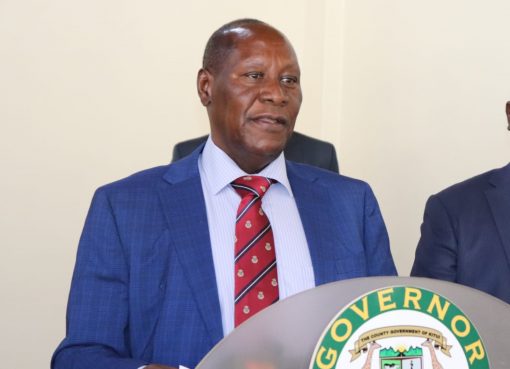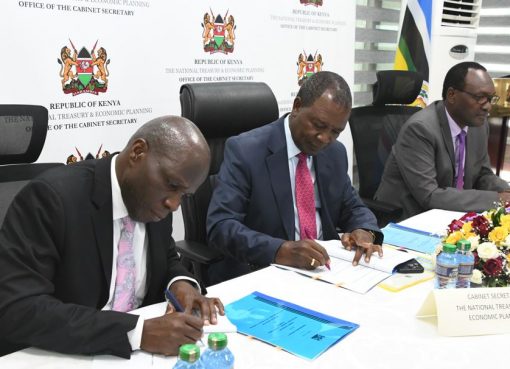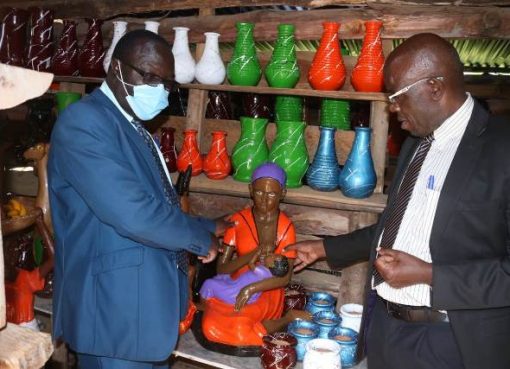The celebrated author Jane Austen has something to say about young men and marriages. In Pride and Prejudice, the author held that ‘it is a truth universally acknowledged that a single man in possession of a good fortune must be in want of a wife.’
This memorable though sweeping statement failed to address the plight of hundreds of poverty-stricken single men in rural Wundanyi villages who need to make honest women of their girlfriends.
Mr Josephat Mbela, 27, from Ndonga village might not be acquainted with the feminist author but he certainly does not agree with her.
“Even poor young men with no property to their name need a wife too. They are men,” he quips with a loud chuckle.
Mr Mbela is a beneficiary of a novel cultural empowerment programme launched by Wundanyi MP Danson Mwashako that is promoting the ‘boy child’ to ‘man up’. The initiative, privately funded by the first-time legislator, aims at restoring the chivalry in young men who have become masters of ‘hit-and-run’ and avoid taking marital responsibilities with adult gravity.
The elders in the region view this drive as an attempt to a cultural renaissance whose climax is convincing fun-addicted millennials to commit to having formal or traditional weddings and ultimately leaving their parent’s home to strike out on their own independently.
“Most young men are intimidated by the responsibilities that come with marriage. The programme is about encouraging them to take a leap of faith and start families,” explains Mbela.
In 2019, the MP started meeting hundreds of young men in dozens of rural villages to a ‘manly’ talk. While promising to be a big brother to all young men who wanted to marry, the legislator said he would support the ‘boy child’ as they took their first baby steps into the uncharted waters of marital commitments. Part of this process involves getting out of their parent’s home and striking it out on their own.
Mr Patrick Mwamba, an elder in Miasenyi village, says the family ties in traditional Taita homesteads between sons and their mothers were very strong. This, he added, made it difficult for young men to leave because there was always a place for them at their mother’s home.
“There is no compelling reason for a young man to leave because he is much loved at his home. Most will prefer to stay and others even return to their mother’s place at old age,” he explains.
One of the most significant pillars in the MP’s programme is to dignify the age-old honour revered by most African societies of having a young man formally inform a girl’s parents of intention to marry their daughter.
“It shows maturity and responsibility. Parents need to know who has their daughter,” the MP said to a group of youths in December last year.
Mr Mbela explains that cohabitating has become fashionable for most young people struggling with the twin pressures of joblessness and demand to fulfill family’s expectations of a marriage. This, he adds, has become an easy way of avoiding embarrassment of not having money to give a girl’s parents.
“The fear and reluctance to marry is all about being broke. When you go to report to your in-laws that you have their girl, they will expect some little money that you do not have. The alternative is taking the girl and not going to her home,” he explains.
This is the ailment the cultural programme aims to cure. Under the initiative, every young man who decides to have a traditional or formal church wedding is getting Sh 3,000. This money is to support the suitor on what is referred to us in Taita language ‘Kufunga Mnyango’. The loose translation is equivalent to closing the door left open after the girl is gone.
Mr Mbela says that young men should be wise and ‘hustle’ for extra money on their own to top up should the girl’s parents demand more.
“The Sh 3,000 by MP is just a bolster from an elder brother. If you are ready for marriage, you look for extra money to show personal initiative. You are the one marrying; not him,” he says.
The legislator says that reporting to a girl’s parents is highly encouraged as it inculcates into the young men a sense of responsibility beyond self.
“This very important step will also get you the blessing of your in-laws,” explains the MP.
The programme has supported over 100 youth from several villages in the region. It is being touted as an avenue to bring up a generation of responsible young men at a time the region is reeling from challenges like joblessness, drug addiction and general disillusionment from life’s pressure.
Aware that families require support to survive, the MP has launched several agri-business projects through the National Government- Constituency Development Fund (NG-CDF) to support the young people in the region. Under the Boresha Maisha initiative, several groups grow high-yielding products including Hass Avocados, Pixie Oranges and French beans.
Mr Mbela explains that the programme extends to post-wedding economic empowerment to enable young families earn a living from agricultural projects.
“The MP is just not pushing us into settling down and leaving us to our own means. He has supported income-generating projects that enable young couples to support their families,” says the young father.
However, a section of young men are torn between settling down and continuing sowing wild oats. A Mbengonyi youth who only identified himself as Martin says at 29, he feels he has many years ahead before he settles down. He says that though the MP’s initiative is welcome and very tempting, the amount involved was too little for anyone not committed to settle down permanently.
“The money is very enticing but I am a little hesitant to accept it for now. Once you cross the bridge, there is no coming back. I still have to do one or two things,” he says with a laugh. He hopes the MP’s offer will still be available when he decides to settle down. He discloses that it will be ‘soon.’
By Wagema Mwangi





